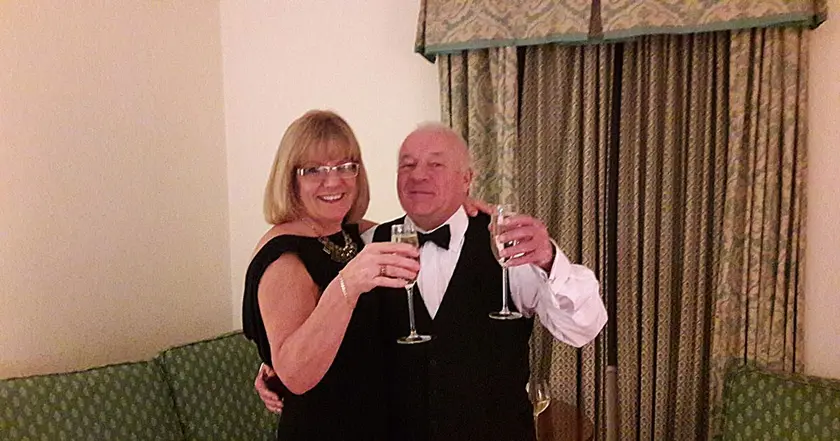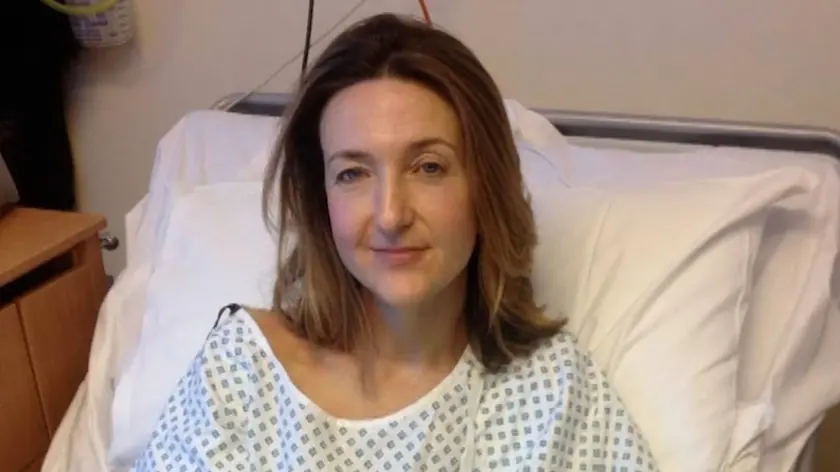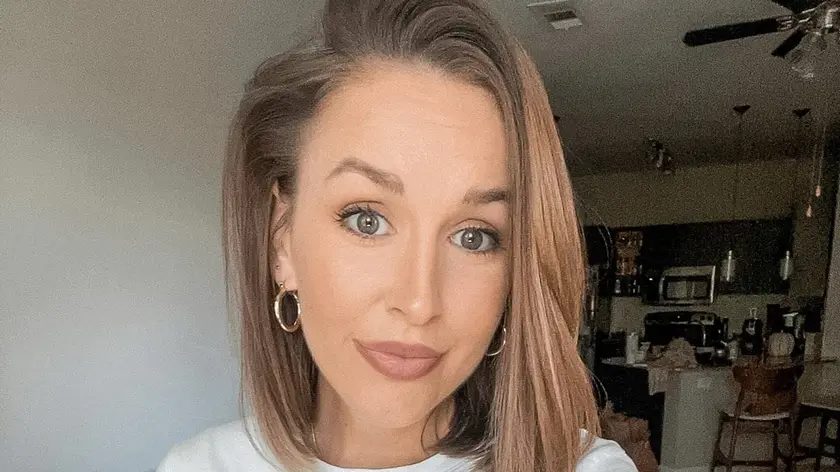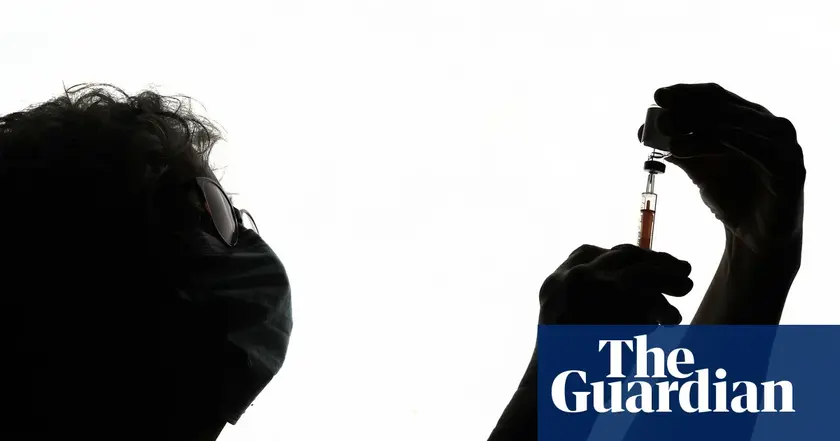T4K3.news
Pancreatic cancer patient beats odds after husband
A 70-year-old woman defies a grim prognosis after chemotherapy shrinks tumours; she now awaits regular checkups with a grandchild on the way.

Ann Lally, 70, battles advanced pancreatic cancer after the death of her husband from the same disease.
Widow Beats Pancreatic Cancer After Husband Died of It
Ann Lally, a 70-year-old former childminder from near Stockport, was diagnosed with advanced pancreatic cancer in June 2024, just months after her husband Mike received the same diagnosis and died in March 2024. Doctors warned she might have six to twelve months to live, a stark prognosis given the cancer’s spread to her liver and lungs. She underwent six months of fortnightly chemotherapy at The Christie NHS Foundation Trust, and doctors announced a 42 percent reduction in tumours. She has since stopped treatment and continues regular three-month checkups. Ann welcomed her first grandchild, Arthur, in June, a development she says gives her extra motivation to keep fighting. The Christie is noted as Europe’s largest single-site cancer centre, and Cancer Research UK cites grim odds for cancers that have spread, underscoring how unusual it is for a patient to survive beyond a year in such cases. Ann’s husband’s illness was complicated by COPD, which prevented further diagnostic steps and treatment for him, heightening the emotional weight of the pair’s shared diagnosis.
Key Takeaways
"I’ve gone past the expiry date."
Ann remarks on surviving beyond a grim prognosis.
"They didn’t give up on me."
Ann credits The Christie staff for perseverance.
"My kids heard that I might only have six months to live."
Family impact of the diagnosis.
"To get the diagnosis and then become a grandmother, that made me more determined to fight it."
Turning point from diagnosis to renewed resolve.
This case highlights how modern treatment can tilt the odds in a life won’t give up story, even when an illness seems almost certain to win. The fact that Ann’s tumours shrank and that she is now stable enough to forego ongoing medication shows the potential for meaningful gains, even in late-stage disease. At the same time, it shows how hope is personal and fragile; prognosis remains uncertain, and access to high-quality care matters. The emotional toll on children and siblings is clear, as is the importance of a compassionate care team that stays committed when numbers look bleak. In broader terms, the story underscores the tension between statistics and individual outcomes in pancreatic cancer, where a handful of survivors challenge the typical trajectory while millions face difficult odds.
Highlights
- I’ve gone past the expiry date.
- Extra time with my first grandchild is priceless.
- They didn’t give up on me.
- Treasuring every second of it keeps me going.
Each survivor’s path reshapes the conversation about what late-stage cancer can look like.
Enjoyed this? Let your friends know!
Related News

Owain James case prompts call for tissue handling reform

Campaign for Owain's law prompts policy debate

Betsy Lewis, 75, celebrates life after stopping cancer treatment

Alcohol and cancer study prompts NHS screening drive

Victoria Derbyshire reflects on her cancer journey

Health study links

Pancreatic cancer vaccine shows early promise

New pancreatic cancer early warning sign discovered
